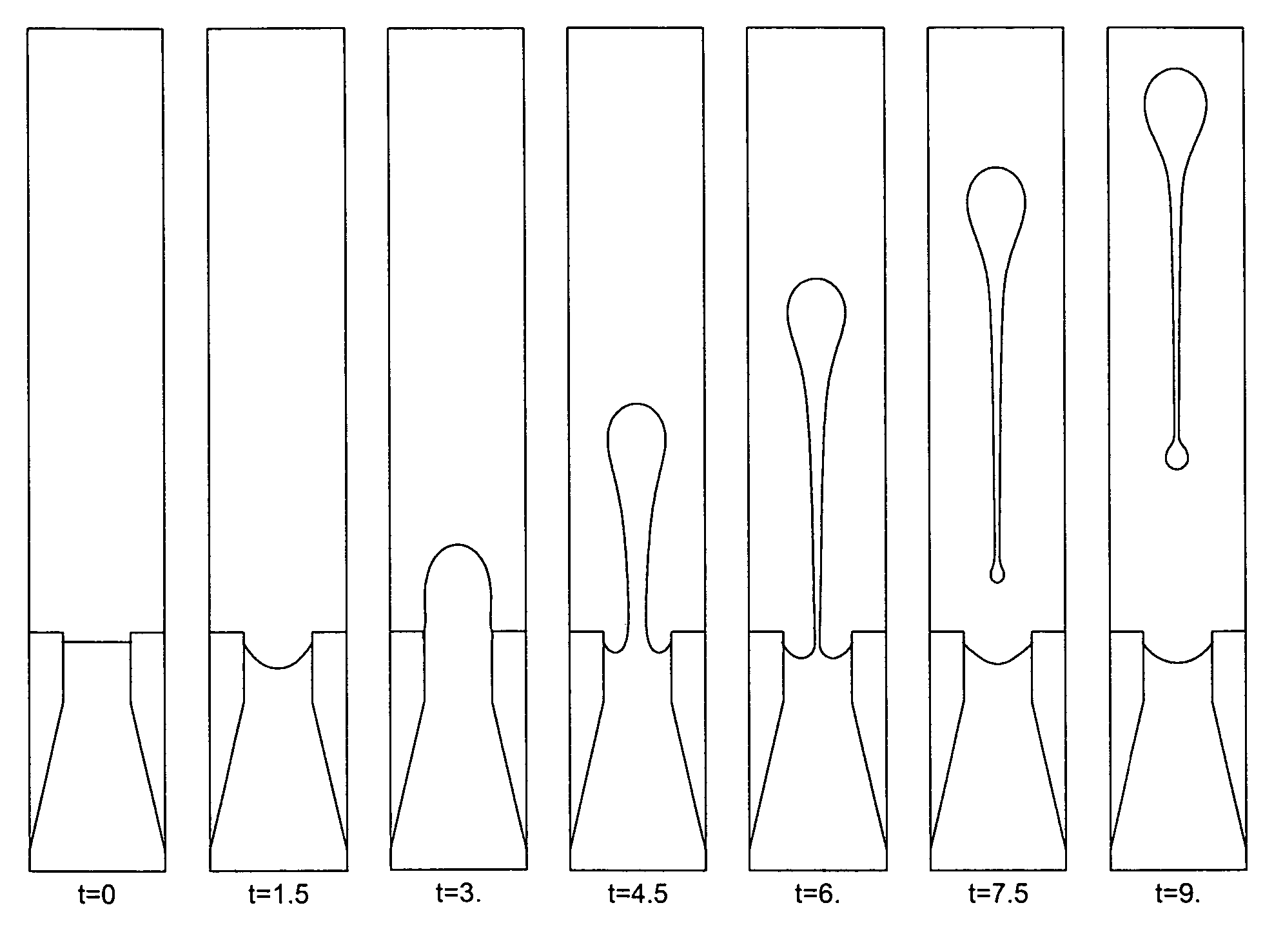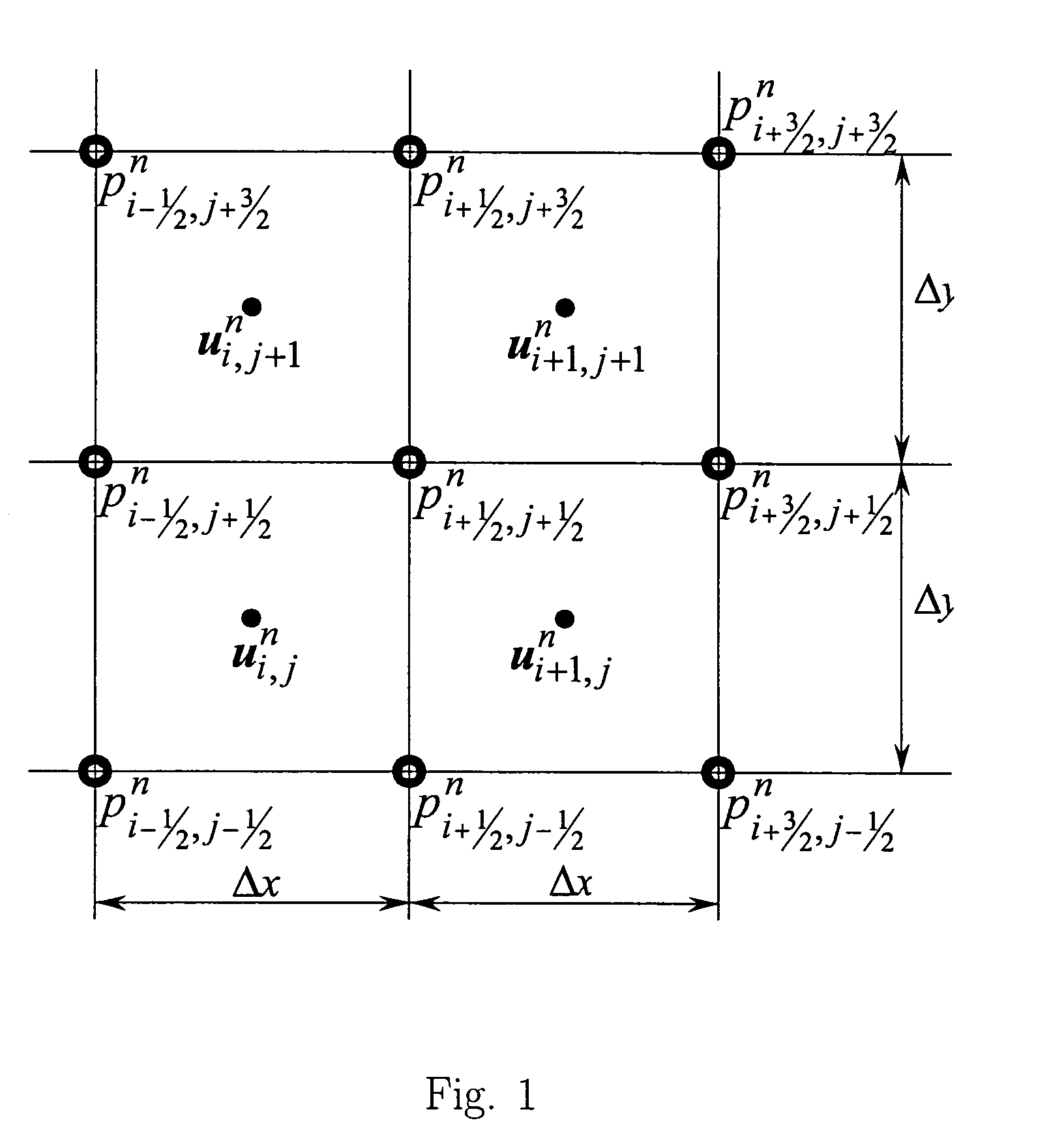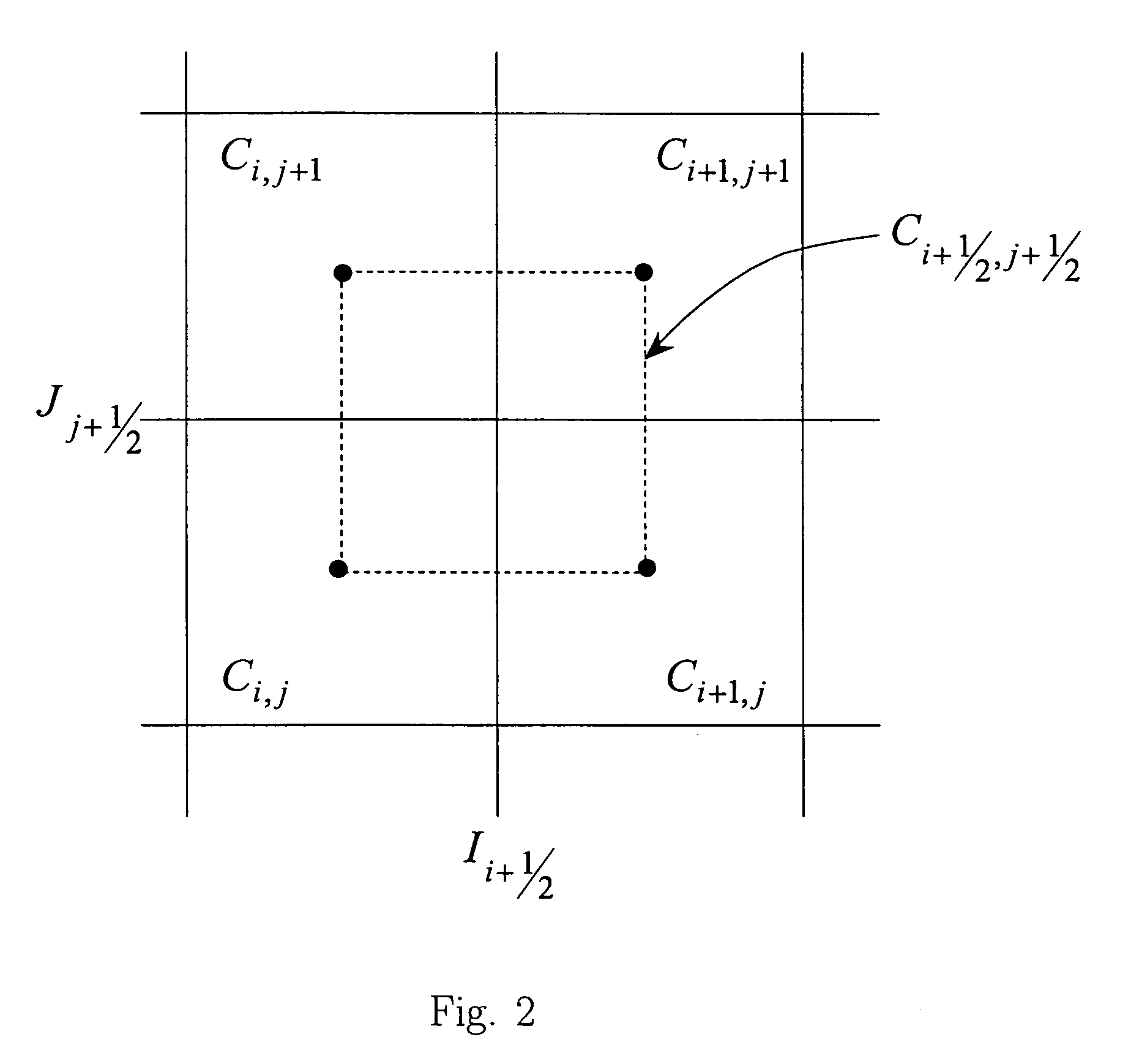2D central difference level set projection method for ink-jet simulations
a projection method and technology of inkjet simulation, applied in the field of 2d central difference level set projection method for inkjet simulation, can solve the problems of increasing the complexity of the code required to do the taylor's extrapolation in both time and space and the upwind procedure, and the local riemann problem may not have simple solutions, etc., to achieve the effect of easy implementation, and improving the performance of the central difference schem
- Summary
- Abstract
- Description
- Claims
- Application Information
AI Technical Summary
Benefits of technology
Problems solved by technology
Method used
Image
Examples
Embodiment Construction
[0029]I. Introduction
[0030]This invention is regarding the development of a central difference level set projection method on uniform rectangular grids for two-dimensional two-phase flow, especially ink jet, simulations. The Navier-Stokes equations are first solved in each time step without considering the condition of incompressibility. The obtained velocity is then “projected” into a space of divergence-free field. In contrast to the upwind scheme of the related application, the central difference scheme here uses staggered cell averages and the direction of local velocity is not important. To solve the Navier-Stokes equations, the velocity and level set slopes are first calculated. Taylor's extrapolation in time is used in calculating the time-centered velocity and level set predictors. These predictors are then employed to calculate the velocity corrector, which is not divergence-free.
[0031]One characteristic of the scheme is, if at time step t=tn the velocities and level set ar...
PUM
 Login to View More
Login to View More Abstract
Description
Claims
Application Information
 Login to View More
Login to View More - R&D
- Intellectual Property
- Life Sciences
- Materials
- Tech Scout
- Unparalleled Data Quality
- Higher Quality Content
- 60% Fewer Hallucinations
Browse by: Latest US Patents, China's latest patents, Technical Efficacy Thesaurus, Application Domain, Technology Topic, Popular Technical Reports.
© 2025 PatSnap. All rights reserved.Legal|Privacy policy|Modern Slavery Act Transparency Statement|Sitemap|About US| Contact US: help@patsnap.com



